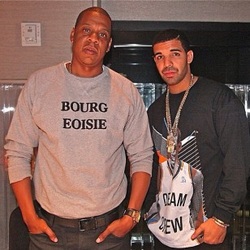God of our weary years, God of our silent tears,
Thou Who hast brought us thus far on the way;
Thou Who hast by Thy might, led us into the light,
Keep us forever in the path, we pray.
Lest our feet stray from the places, our God, where we met Thee.
Lest our hearts, drunk with the wine of the world, we forget Thee.
Shadowed beneath Thy hand, may we forever stand,
True to our God, true to our native land. - Lift Ev'ry Voice and Sing
So says the last stanza of the Negro National Anthem. It assumes that there is a sympathetic heavenly being actively watching out over black folk since our ancestors were first thrown into the tragic circumstances of enslavement and racial oppression. It is at the root of theistic forms of Black religion. Anthony Pinn in Why Lord? Suffering and Evil in Black Theology discusses black folk's attempts to rationalize their circumstances in the language of redemptive suffering. It posits a benevolent, loving, all-powerful deity who is offended at the mistreatment of black folks and will eventually end that suffering in an act(s) of divine justice. The reasons for this ethnic suffering range from being the instrument of instruction to teach America to be more just society to the erroneous belief that black folk have merited this suffering by some act of divine disobedience. But what all of this "God-talk" (as Pinn calls it) does is beg a critical question that was posed by William R. Jones at the height of the black liberation theology movement, "Is God a White Racist?" Essentially, Jones ask Black Christians in particular and black theists more broadly to provide evidence that God is on the side of the oppressed.
Today all across America various versions of the redemptive suffering trope are being sermonized in Black churches especially the one that the parents of Trayvon Martin decided to attend this morning. Black folks will be told that the justice of God in light the Zimmerman acquittal should not be questioned. That this tragedy is a part of God's greater plan. Some might argue that it was necessary for Trayvon's death and Zimmerman's acquittal to solidify the push for a new authorization of the recently gutted Voting Rights Act or perhaps as President Obama has opined the need to pass new gun control legislation , or to move black people on a host of other social and political issues. That seems like an unreasonable burden for a 17 year old child. It almost reeks of human child sacrifice. In order to move God of our weary years and silent tears to act we must continue to offer our children up as unblemished offerings to gain (and keep) the basic civil rights of an American citizen and human rights in general. Did somehow the lives of Emmett Till, Cythnia Wesley, Carole Robertson, Addie Mae Collins, and Denise McNair (and countless others) brutal deaths no longer satiate this deity and now required the lives of Trayvon Martin, Jordan Davis, Rekia Boyd, Marissa Alexander, and Aiyanna Stanley? Crazy and insane logic you say? That's exactly what is being argued each time black people invoke that these deaths are a part of some divine plan of redemptive suffering for black freedom.
More importantly, what type of God is this that requires black folks to offer up their children to the cult of white supremacy to access a public bathroom or a voting booth? I argue only a God that is a cruel unashamed, unsympathetic white racist; or more accurately African Americans have unconsciously constructed a deity that is a white racist and looks to it for their liberation from oppression. Either way, this deity can never be the source of black folks struggle to lead more meaning lives as human beings.
Thou Who hast brought us thus far on the way;
Thou Who hast by Thy might, led us into the light,
Keep us forever in the path, we pray.
Lest our feet stray from the places, our God, where we met Thee.
Lest our hearts, drunk with the wine of the world, we forget Thee.
Shadowed beneath Thy hand, may we forever stand,
True to our God, true to our native land. - Lift Ev'ry Voice and Sing
So says the last stanza of the Negro National Anthem. It assumes that there is a sympathetic heavenly being actively watching out over black folk since our ancestors were first thrown into the tragic circumstances of enslavement and racial oppression. It is at the root of theistic forms of Black religion. Anthony Pinn in Why Lord? Suffering and Evil in Black Theology discusses black folk's attempts to rationalize their circumstances in the language of redemptive suffering. It posits a benevolent, loving, all-powerful deity who is offended at the mistreatment of black folks and will eventually end that suffering in an act(s) of divine justice. The reasons for this ethnic suffering range from being the instrument of instruction to teach America to be more just society to the erroneous belief that black folk have merited this suffering by some act of divine disobedience. But what all of this "God-talk" (as Pinn calls it) does is beg a critical question that was posed by William R. Jones at the height of the black liberation theology movement, "Is God a White Racist?" Essentially, Jones ask Black Christians in particular and black theists more broadly to provide evidence that God is on the side of the oppressed.
Today all across America various versions of the redemptive suffering trope are being sermonized in Black churches especially the one that the parents of Trayvon Martin decided to attend this morning. Black folks will be told that the justice of God in light the Zimmerman acquittal should not be questioned. That this tragedy is a part of God's greater plan. Some might argue that it was necessary for Trayvon's death and Zimmerman's acquittal to solidify the push for a new authorization of the recently gutted Voting Rights Act or perhaps as President Obama has opined the need to pass new gun control legislation , or to move black people on a host of other social and political issues. That seems like an unreasonable burden for a 17 year old child. It almost reeks of human child sacrifice. In order to move God of our weary years and silent tears to act we must continue to offer our children up as unblemished offerings to gain (and keep) the basic civil rights of an American citizen and human rights in general. Did somehow the lives of Emmett Till, Cythnia Wesley, Carole Robertson, Addie Mae Collins, and Denise McNair (and countless others) brutal deaths no longer satiate this deity and now required the lives of Trayvon Martin, Jordan Davis, Rekia Boyd, Marissa Alexander, and Aiyanna Stanley? Crazy and insane logic you say? That's exactly what is being argued each time black people invoke that these deaths are a part of some divine plan of redemptive suffering for black freedom.
More importantly, what type of God is this that requires black folks to offer up their children to the cult of white supremacy to access a public bathroom or a voting booth? I argue only a God that is a cruel unashamed, unsympathetic white racist; or more accurately African Americans have unconsciously constructed a deity that is a white racist and looks to it for their liberation from oppression. Either way, this deity can never be the source of black folks struggle to lead more meaning lives as human beings.


 RSS Feed
RSS Feed
